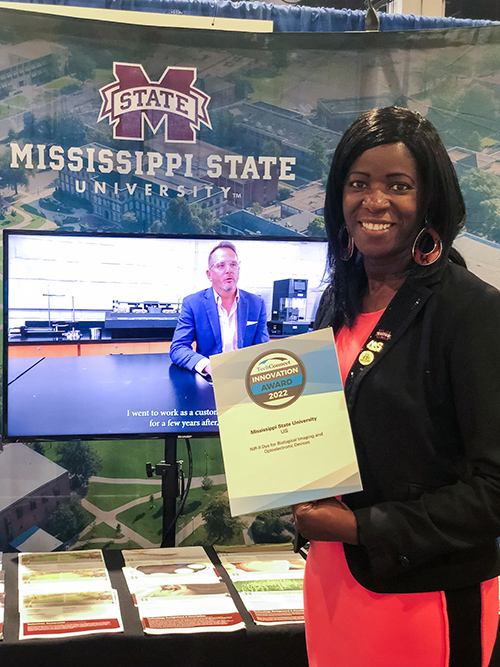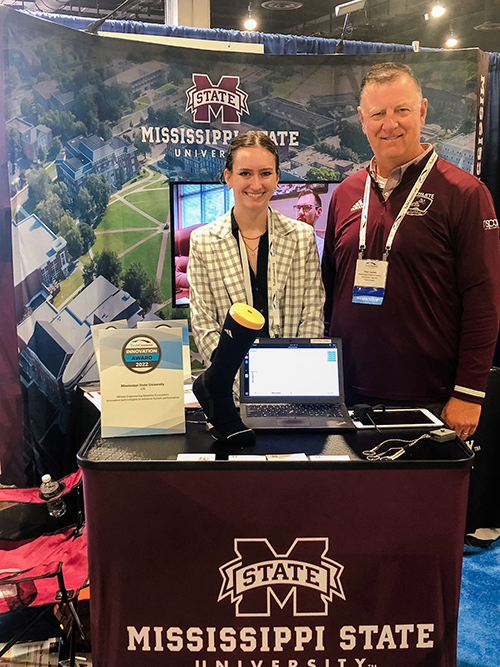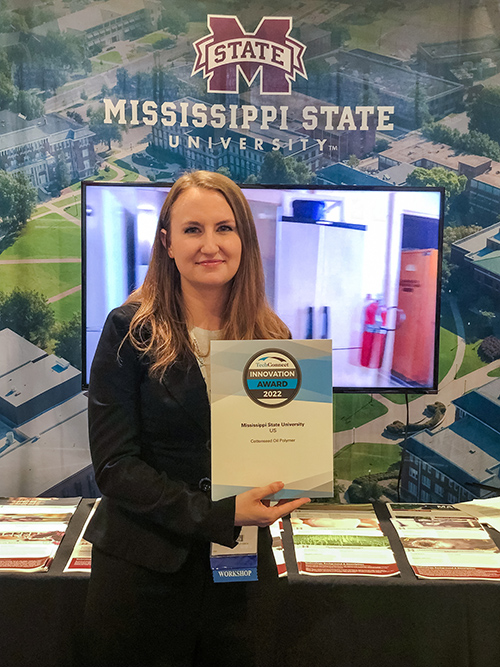MSU researchers receive three global TechConnect Innovation Awards
Contact: James Carskadon

STARKVILLE, Miss.—Mississippi State University researchers are once again being recognized at a leading global technology conference for their innovation.

Three MSU projects this week received the Innovation Award at the TechConnect World Innovation Conference and Expo, held in Washington, D.C. An MSU research team also was recognized with an Innovation Award in 2021.
The individuals recognized at the 2022 conference include Colleen Scott, assistant professor of Chemistry for “NIR-II Dye for Biological Imaging and Optoelectronic Devices”; NSPARC Assistant Research Professor Tony Luczak and Erin Parker, a graduate student in industrial and systems engineering, for “Athlete Engineering - Baseline Ecosystem: Innovative Technologies to Enhance Human Performance;” and Fashion Design and Merchandising Associate Professor Charles Freeman, Swalm School of Chemical Engineering faculty members Bill Elmore and Santanu Kundu, graduate student Katherine Elmore and former postdoctoral researcher Rangana Wijayapala for “Cottonseed Oil Polymer.”

“These researchers have developed outstanding contributions to their scientific fields, and this recognition from TechConnect represents the strong potential of these new technologies to benefit society at large,” said Jeremy Clay, director of MSU’s Office of Technology Management. “I am excited to see these innovations being recognized at a global level and look forward to working with the researchers and potential licensees to get these technologies to market and broaden their impact.”
The invention “NIR-II Dye for Biological Imaging and Optoelectronic Devices” is a novel material developed to absorb and emit light in the NIR-II region, where humans are more transparent. The fluorescence-based dye enhances optical imaging and devices, which would allow potential companies in the biomedical industry to improve biological imaging and testing.
“Athlete Engineering - Baseline Ecosystem: Innovative Technologies to Enhance Human Performance” uses wearable artificial intelligence technology to improve performance and safety in sports, military, industry and at-risk settings. The Baseline Ecosystem is made up of embedded wearable and bendable sensors, AI-driven mobile markerless motion capture, and augmented and virtual reality technologies, combining advanced human data capture technology with user-friendly evaluation tools.
“Cottonseed Oil Polymer” discloses two different ways to synthesize cottonseed oil-based polymers. The novel polymers can be used as the base for synthetic materials such as polyester, providing an alternative to current synthetic materials that often have a larger environmental impact due to slow decomposition rates. In addition to providing enhanced mechanical properties, the polymers can be used to make products more biodegradable.
For more information on these technologies and other disclosures available for licensing, visit the Office of Technology Management at www.otm.msstate.edu.
MSU is Mississippi’s leading university, available online at www.msstate.edu.